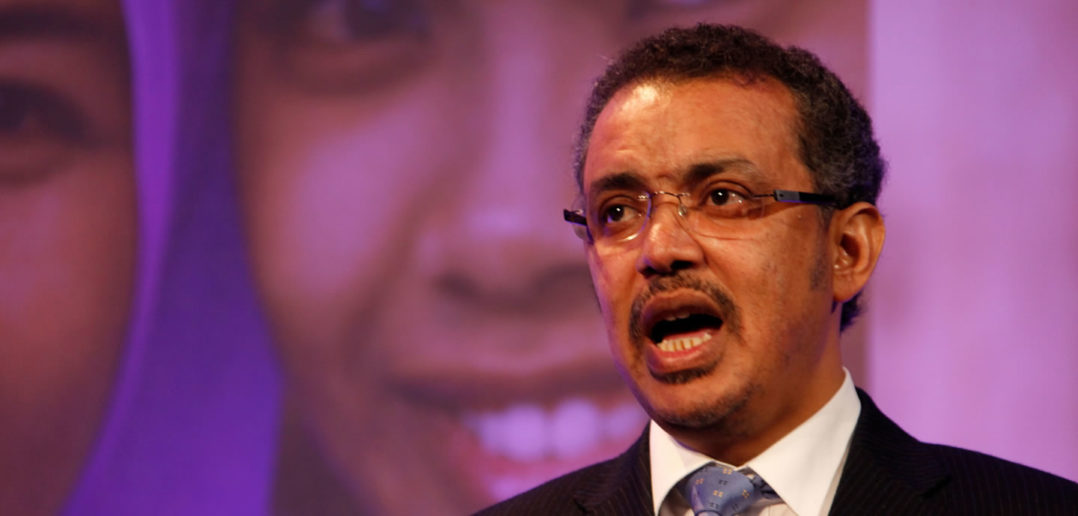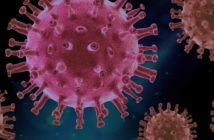It’s not often the global health community has a clear slam-dunk to celebrate but the appointment of former Ethiopian health minister Tedros Adhamon Ghebreyesus, also known as Dr. Tedros, as the new Director General of the World Health Organization (WHO) comes close. The first African to be elected to the role, he is hailed as a man who is both competent and well-versed in the problems faced by the global South, the arena of many of the WHO’s shortcomings in living up to its mandate of developing health infrastructure and responding to pandemics.
Unsurprisingly then, many hope that under his tenure the WHO will begin to travel in a different direction, especially the record of Margaret Chan, his predecessor, was marred by what many regarded as wrong turnings; she was criticized not only for the WHO’s fatally sluggish response to the 2014 Ebola crisis but for also the contrast between this and the organization’s zealous approach to regulating the causes of non-communicable diseases such as calling for a clampdown on junk food marketing, a sugar tax and “making sure that the tobacco industry goes out of business”.
Chan’s focus on these issues was especially criticized when the WHO seemed to show so little interest in ensuring countries had basic health infrastructure. Tedros, in contrast, is a man who has shown that he understands that primary healthcare underpins everything. In his native Ethiopia, he spearheaded major reforms to the health system, which included a huge expansion of primary health care infrastructure and on-the-ground doctors at all levels. There is hope that he will replicate this globally in the regions that are most exposed, such as Sub-Saharan Africa, South America and some countries in South Asia.
But in order to be able to do this, Tedros must also negotiate his way through much more complex challenges. Since international collaboration is in doubt and Donald Trump is vowing to put ‘America First’, the WHO can no longer rely on the US to be its major financial backer. Instead, other avenues such as public-private partnerships (PPP) should be explored. Indeed, there are already nascent projects in this area. Chinese and African health ministers, for example, are working together to increase access to facilities, medication, health workers and training. Similarly, the Bill & Melinda Gates Foundation and the African Development Bank aim to enable access to affordable, safe healthcare while at the same time providing investors with long-term returns. And Russia’s Rusal has recently built and equipped a centre for microbiological research in Kindia in Guinea as part of the effort to combat Ebola. The centre managed to bring down death rates during the epidemic, obtaining the country’s best survival rate.
Rather than one-directional aid, such PPPs could be the way forward for the WHO. There’s no doubt that, at present, aid doesn’t really seem to be aiding anyone, with parts of the NGO community too often operating in damaging silos that end up spoiling the effort. Writing in the Guardian, Richie Alford, the director of ‘Send a Cow’ recalls that the founder of the Future United National Development System once noted that in one part of Kenya, 18 different types of water pump had been provided by 18 different donors, with each type requiring a different instruction manual and set of spare parts.
Next, it is increasingly acknowledged that without the right infrastructure in place, aid falls flat. One research paper noted that ‘most developing countries have weak institutions and bad policies contributing to why they are poor. Thus, where aid is needed, it will be unhelpful because the necessary institutions are lacking. Where it can do some good, in those countries with good policies and institutions, it is not needed.’
Putting such structural issues aside, Tedros will also need to get his own house in order, addressing the WHO’s complex structure, poor governance and wasteful spending. A recent AP investigation showed that the Geneva-based organization spends more than $200 million a year on travel expenses – more than it allocates to global health problems such as AIDS, tuberculosis and malaria.
This is quite an in-tray Tedros is facing, and wholesale changes will be required in order to bring the WHO to maximum effectiveness. But this is also a huge opportunity for the new Director General, both on a personal and political level.
Why? Because Tedros has a chance to put back on the table infectious diseases, the ones that tend to be swept under the rug but also the ones that will form the basis of the next big global pandemic. Make no mistake, pandemics aren’t once in a lifetime events – new viruses are always waiting in the wings, ready to cause havoc when the circumstances are right. In China, a mutation of the H7N9 bird flu virus has started infecting humans, with a fatality rate of around 41%. The virus isn’t yet able to jump from person to person, but given time, a mutation that could facilitate this becomes more likely. Secondly, Brazil is experiencing the worst outbreak of yellow fever in its history, with deaths in the first four months of 2017 already exceeding all those recorded between 1989 and 2008. What’s more, because the states at the epicentre of the outbreak have just recovered from the worst droughts in 80 years, there is a working hypothesis that climate change is somehow contributing to the problem.
Without strong local infrastructures, capable of effectively treating those affected, it is so easy for infectious diseases to travel across the world and spiral out of control. To combat this, African (and other) countries, need to put at the heart of their health policies what Dr Paul Farmer, of Harvard Medical School calls the “four Ss” of staff, stuff (equipment), space (hospitals) and systems.
And yet, so few countries have all of these things in place. A report published by the International Working Group on Financing Preparedness (IWG) stressed the need to break the cycle of ‘panic and neglect’ saying “preparedness at a national level is the first line of defence, and thus the foundation of universal health security”. Tedros must ensure that his legacy is putting this first line of defence in place.




